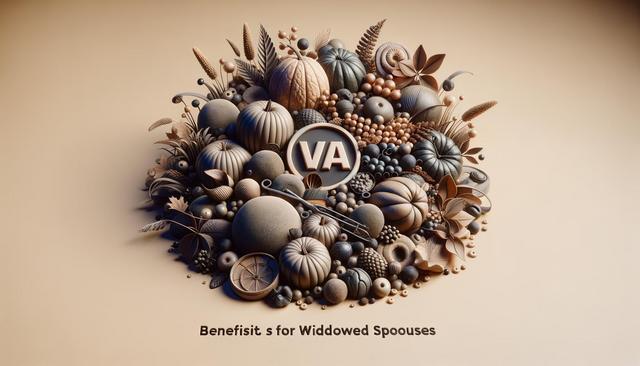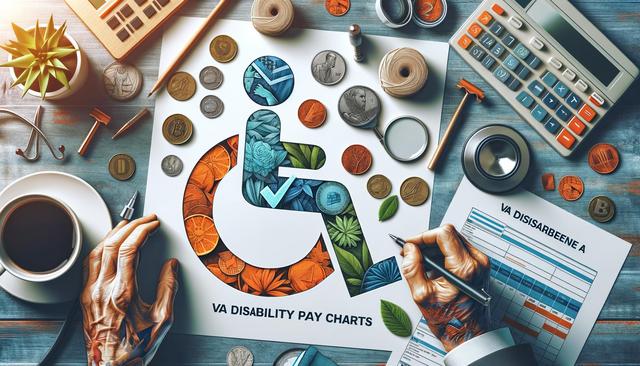Dependency and Indemnity Compensation (DIC)
One of the most significant benefits available to surviving spouses is the Dependency and Indemnity Compensation (DIC). This tax-free monthly payment is offered to eligible survivors of service members who died in the line of duty or due to a service-related injury or illness. To qualify, the marriage must have met specific requirements, such as being legally recognized and lasting for a certain duration. In some cases, even a common-law marriage may be considered eligible if state laws recognize it.
The amount of DIC received can vary based on several factors, such as the date of death and whether the surviving spouse has dependents. Additional compensation may be available for:
- Children under the age of 18 or those still in school
- Surviving spouses who require Aid and Attendance due to disability
- Spouses who are housebound
It’s important to note that DIC is not automatically granted. Widowed spouses must apply and provide supporting documentation, such as the veteran’s death certificate and service records. Timely application and accurate paperwork can speed up the review process.
Survivor’s Pension and Financial Assistance
In addition to DIC, some surviving spouses may qualify for a Survivor’s Pension, also known as the death pension. This benefit is available to low-income, unremarried spouses of wartime veterans. The pension amount depends on the surviving spouse’s income and net worth, as determined by the VA’s current limits.
To be eligible, the veteran must have met specific service requirements, such as serving during a recognized wartime period and receiving an honorable discharge. The surviving spouse must also meet income and asset thresholds. If approved, this benefit provides monthly financial support that can help cover basic living expenses.
Additional financial assistance programs include:
- Special Monthly Pension for those needing Aid and Attendance
- Financial help for burial and funeral costs
- Access to VA-backed home loans in some cases
These programs aim to provide financial stability and ensure that the surviving spouse is not left without support after the loss of their partner.
Education and Training Support
The VA also offers education and training benefits to eligible widowed spouses through the Survivors’ and Dependents’ Educational Assistance (DEA) program. This initiative helps spouses pursue higher education, vocational training, or certification programs to improve their employment opportunities and long-term financial security.
Benefits under DEA may include:
- Tuition and fees for college or university courses
- Vocational or technical training programs
- Apprenticeship and on-the-job training support
These benefits are typically available for up to 10 years from the date of the veteran’s death or the spouse’s eligibility determination. However, under certain circumstances, the eligibility period may be extended. Widowed spouses should explore these opportunities to upskill or enter new career paths, especially if their previous income was heavily dependent on the veteran’s earnings.
Some survivors may also qualify for the Fry Scholarship, which provides education benefits similar to those offered under the Post-9/11 GI Bill. Eligibility for the Fry Scholarship generally applies to the spouses of service members who died in the line of duty after September 10, 2001. This program covers tuition, housing, and supplies for eligible participants.
Healthcare and Insurance Options
Healthcare coverage is another important aspect of VA benefits for widowed spouses. The Civilian Health and Medical Program of the Department of Veterans Affairs (CHAMPVA) offers healthcare benefits to eligible surviving spouses who do not qualify for TRICARE. CHAMPVA covers a wide range of medical services, including outpatient care, hospital services, prescriptions, and mental health support.
To qualify for CHAMPVA, the spouse must not be eligible for Medicare Part A or must be enrolled in both Medicare Parts A and B. This program can significantly reduce the cost of healthcare services and provide access to a broad network of providers.
In terms of life insurance, some surviving spouses may be eligible for proceeds from the veteran’s Servicemembers’ Group Life Insurance or Veterans’ Group Life Insurance, provided the veteran had an active policy at the time of death. Additionally, spouses may apply for Family Servicemembers’ Group Life Insurance if they were covered under a family plan before the veteran’s passing.
These insurance and healthcare options help ensure that widowed spouses maintain access to medical care and financial protection, which are vital during such a difficult time.
Burial and Memorial Benefits
The VA also supports widowed spouses through a range of burial and memorial benefits that honor the service of the deceased veteran. These include burial in a national cemetery, a government-furnished headstone or marker, a burial flag, and a Presidential Memorial Certificate. In some cases, the VA may provide reimbursement for burial expenses if specific conditions are met.
Spouses can be buried alongside their veteran in a VA national cemetery, which includes perpetual care at no cost to the family. This option offers a lasting tribute to the veteran’s service and creates a place for loved ones to pay their respects.
Other available services include:
- Grave opening and closing
- Maintenance and care of the gravesite
- Placement of a grave liner to preserve the site
To access these benefits, the spouse or family member must submit an application and provide necessary documentation, such as the veteran’s discharge papers and death certificate. These honors not only commemorate the veteran’s contribution but also provide emotional and ceremonial support to the family.


